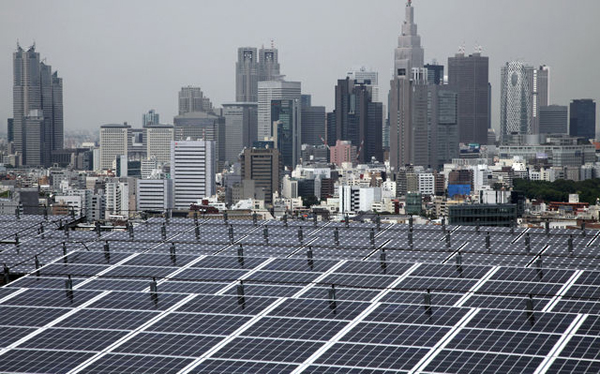Approving incentives for clean energy, in an apparent effort to ease Japan’s dependence on fossil fuel and nuclear power while increasing revenues for energy sources that would promote the country as a market for renewable energy, again brings the power agenda to the forefront of our minds – if indeed it ever left.
It comes just days after the government decided to reactivate the nuclear reactors at the Oi nuclear power plant in Fukui Prefecture. The government is currently under extreme pressure to explain why it did not divulge information and data it had from the US about the amount of radiation spilling from the Fukushima plant after the Tsunami last year.
Despite solar panels becoming an increasingly common site on the sides of houses, even in Tokyo, renewable sources account for only 1% of Japan’s power supply, while nuclear power usually accounts for almost 30%.
According to the Financial Times, under the new plans, electric power companies will be required to buy excess electricity from renewable sources, up to a maximum of 500 kwh, at a higher rate, but will gradually be allowed to buy more.
Continuing the search for alternatives, campaigners – including the those organizing the No Nukes event at Makuhari Messe on July 7 with, amongst others Kraftwerk taking the stage in support – will be hoping for more. More communication and more action.









